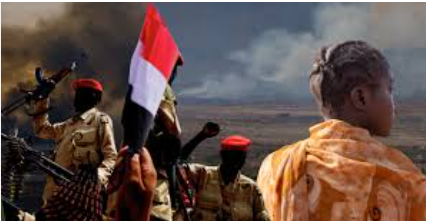
The UN Security Council should urgently summon Kenya to respond to allegations of arming Sudan’s rebel Rapid Support Forces, human rights campaigners have said.
The demand comes amid the raging civil war in Sudan, marked by crimes against humanity.
Led by the Kenya Human Rights Commission, the International Commission of Jurists and the Independent Medico-Legal Unit, the 14 advocacy groups insist that the Kenyan government must be held accountable over allegations of undermining regional peace, which has inflicted untold suffering on Sudanese civilians.
In addition to urging the security council’s intervention, the civil society groups demand that Parliament summon the Ministry of Defence to publicly provide a detailed and comprehensive explanation to claims arms intended for the Kenya Defence Forces ended up with the RSF militia.
“This question is of the utmost importance, given the impact such actions would have on human rights in Sudan,” they said.
The groups are responding to a recent investigative media report that uncovered military-grade ammunition marked with Kenyan emblems in a depot reportedly used by the RSF.
Beyond these findings and Kenya’s repeated hosting of RSF leaders – including a red-carpet reception for its head, General Mohammed Dagalo – the groups assert that the evidence implicating Nairobi is irrefutable.
“We urge the UN Security Council to urgently summon Kenya to respond to these serious concerns regarding its involvement in fueling the continuation of the conflict in Sudan, which runs contrary to the United Nations Security Council's efforts and other UN mechanisms to address the conflict,” the groups said in a joint statement.
Other signatories to the statement include African 4 The Horn of Africa Initiative, Atrocities Watch Africa, Civic Freedoms Forum, Kariobangi Paralegal Network, Kawangware Paralegal Network, Mathare Social Justice Centre and Muslims for Human Rights .
Additional groups are the Pan African Lawyers Union, Pawa 254, Social Justice Centres Working Group and Utu Wetu Trust.
The Ministry of Defence has rejected the claims, stating it does not recognise the crates of ammunition labelled as Kenyan.
However, the advocacy groups dismiss this response as insufficient, noting that “the ministry did not mention if Kenya has done any exports, international transfers, or diversion of weapons, to explain otherwise the presence of the Kenya-labelled crates of ammunition found near Khartoum”.
A report by the UN’s Independent International Fact-Finding Mission for Sudan found reasonable grounds to believe that the RSF and its allied militias have committed war crimes, including rape, sexual slavery, pillage, forced displacement of civilians and the recruitment of children under 15 years old for combat.
In mid-April, a group linked to the RSF convened at Nairobi’s KICC – a government facility – to purportedly form a parallel government.
This led to a breakdown in trade and diplomatic relations between Sudan and Kenya and continues to undermine regional efforts toward justice, accountability and resolution of the conflict that threatens stability in the Horn of Africa.
The groups accuse President William Ruto’s administration of damaging Kenya’s longstanding reputation as a peacemaker in the region.
They argue that pressure from the Council will compel the government to “immediately uphold and respect international obligations under the United Nations Charter, the Constitutive Act of the African Union, the Convention on the Prevention and Punishment of the Crime of Genocide and the Rome Statute of the International Criminal Court”.
“Considering Kenya’s past track record of being a peacemaker within the East African Region, Kenya should never support any armed group that violates international human rights and humanitarian law.”
















